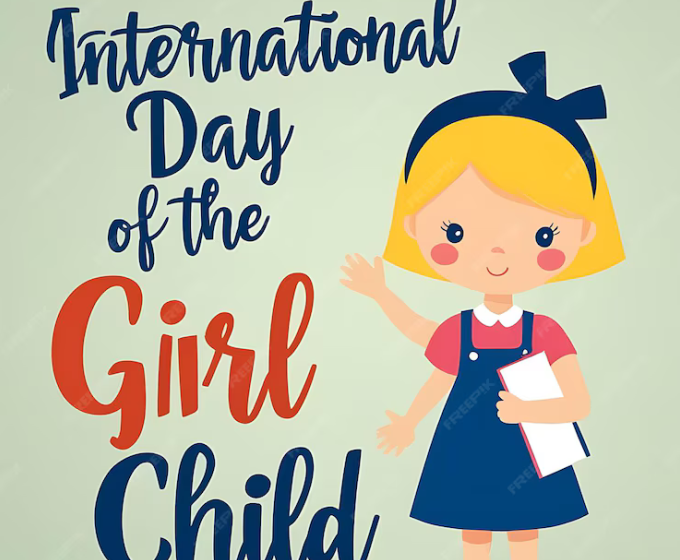Every year on October 11, the world marks the International Day of the Girl Child, a time to reflect and highlight the challenges girls face, and to renew global commitment to advancing their rights, dignity, and potential. Ever since it was establishment by the United Nations in 2012, this initiative has made tremendous impact in the society.
“The Girl I Am, the Change I Lead: Girls on the Frontlines of Crisis”
This year’s theme, “The girl I am, the change I lead: Girls on the frontlines of crisis,” celebrates girls as agents of change. The girl child should not only be seen as victims, but we must recognize that those facing societal challenge can be frontrunners leading change in their communities in the face of conflict, climate shocks, pandemics, or economic stress. This theme calls for three key shifts:
- Recognition: honoring girls’ identities, voices, and leadership, not just their challenges.
- Support: providing the resources, safe spaces, and policies that allow girls to act effectively.
- Inclusion in crisis response: ensuring girls are part of decision-making in humanitarian, development, and recovery efforts.
A Brief History & Key Objectives
In December 2011, the UN General Assembly adopted Resolution 66/170, declaring October 11 as the International Day of the Girl Child to recognize girls’ rights and the peculiar challenges they face. It was first observed in 2012. The day has several key objectives:
- Raise awareness of gendered discrimination, child marriage, violence, and barriers to education that particularly affect girls.
- Promote policies and programs that empower girls (education, health, leadership, digital access).
- Encourage investment in girls’ rights and elevate their voices in leadership at all levels
Over the years, themes have addressed child marriage, girls’ education, digital access, and more, adapting to changing global challenges.

Focus: The Nigerian Girl Child, Education, Abuse & Hope
In Nigeria, the challenges facing girls are severe and complex. Yet, they are also stories of strength and determination.
Education: The Uphill Battle
As of the latest data, about 7.6 million girls in Nigeria are out of school, though actual numbers may vary due to data gaps and reporting challenges, with many dropping out between primary and junior secondary levels. Girls in the northern regions are mostly affected, due to poverty, insecurity, cultural norms, and weak infrastructure.
When girls do enroll, their retention is often threatened by factors such as gendered violence within the education system. A secondary analysis of violence in schools in Nigeria highlights the extent of harassment and abuse.

Abuse, Violence & Rights Violations
Violence is a daily reality for many children in Nigeria, and girls suffer the most. UNICEF reports that one in four girls has experienced sexual violence, but only a few percentage receive support.
Female genital mutilation (FGM) remains a harmful practice in many communities, with Nigeria among the countries with the highest absolute numbers.
Child marriage persists in some areas, denying girls their adolescence, disrupting education, and exposing them to health risks.
Other violations include trafficking, exploitation, bullying, and sexual harassment, all jeopardizing their rights and future.
Expounding the Theme in the Nigerian Context
To make 2025’s theme meaningful in Nigeria:
- Seeing girls as change agents: Girls who survive violence, conflict, or displacement often become advocates for peace, education access, or health rights within their communities. The theme invites recognition for these roles, not just sympathy.
- Amplifying voices in crises: In flood zones, areas experiencing unrest, or regions severely affected by climate change, girls’ needs must guide relief and recovery planning.
- Leadership opportunities: Schools, NGOs, and government should support girls to lead clubs, panels, and youth councils, championing solutions they envision.
- Safe spaces & psychosocial support: For girls caught in crisis or trauma, safe environments where they can heal, learn, and express themselves are essential.
- Bridging digital gaps: Many girls lack devices or connectivity; inclusion in tech and digital education empowers them to lead innovation.
In local communities, this could look like mentorship programs, advocacy groups led by girls, scholarships, and platforms to tell their stories.
Conclusion & Call to Action
This International Day of the Girl Child, we must not just celebrate girls, we must act. We must invest in girls’ education, protect their rights, and elevate their leadership in every sphere of life and society.
In Nigeria especially, the path ahead is challenging but not impossible. When we support the girl who is, we empower the change she will lead, and in doing so, we build a stronger, fairer society for all. Let us commit to enabling every girl to step confidently into her destiny.
We’re amazed to have you as a member of our community. Your time here means so much to us. Just to let you know, we organise workshops, seminars, and youth engagement programmes. Therefore, we indulge you to partner with us for sponsorship and other forms of social enterprise.
Visit our website and follow us on Instagram for more updates.



Leave a Reply